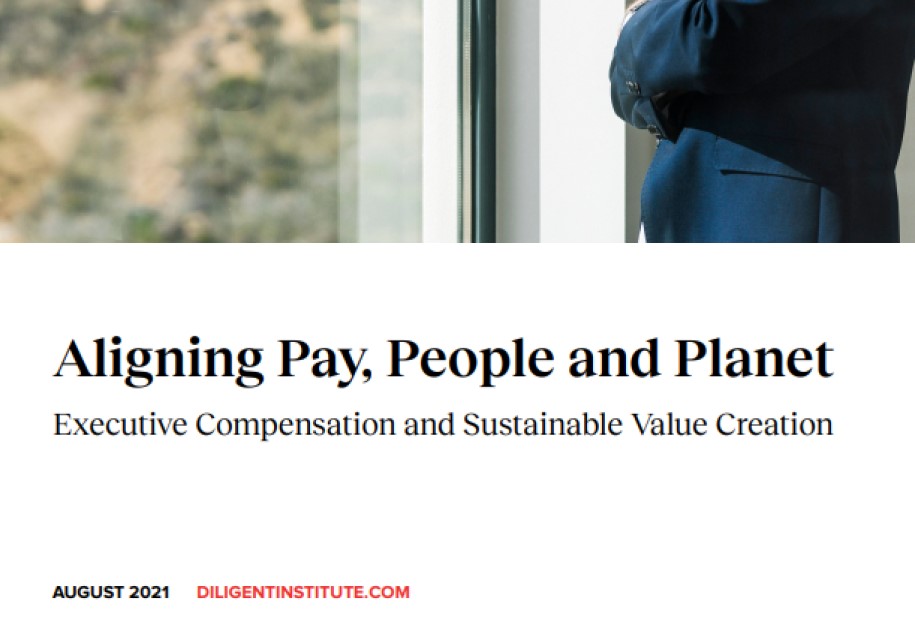Report: Aligning Pay, People and Planet
In this paper, Diligent analyse the implementation of ESG KPIs in executive remuneration policies, look at which metrics are most popular and whether the companies prefer to implement ESG measures as part of short-term or long-term awards.
Key findings
- The percentage of companies incorporating ESG metrics in executive compensation plans in the EU has increased from 4% in 2008 to 34% in 2020.
- The sectors with the highest percentage of companies incorporating ESG metrics in executive compensation are the energy and utilities sectors, with 59% and 64% of companies incorporating ESG metrics. The health care sector has the least representation, with 22% of companies incorporating ESG metrics.
- In the EU, our data suggests that companies are far more likely to incorporate environmental (E) and social (S) metrics over governance (G) metrics.
- ESG metrics are more frequently prevalent in the short-term incentive (STI) annual bonus component of variable compensation, relative to long-term incentives (LTI).
Supplied by REBA Associate Member, Diligent
Our modern governance platform empowers leaders & teams to digitally transform & create positive change.








